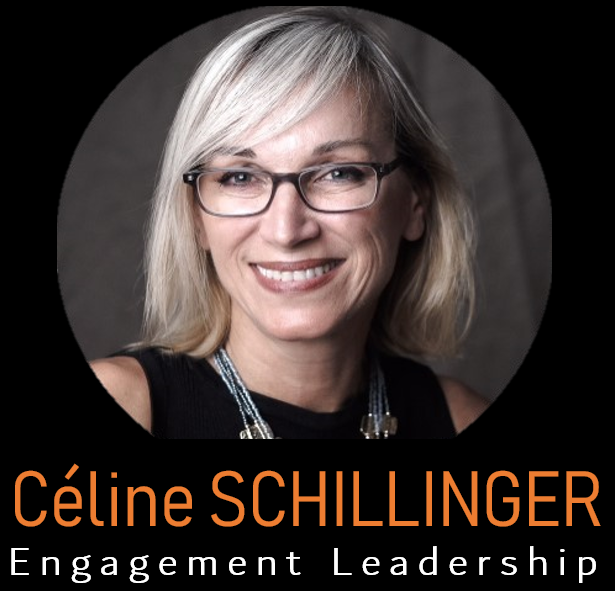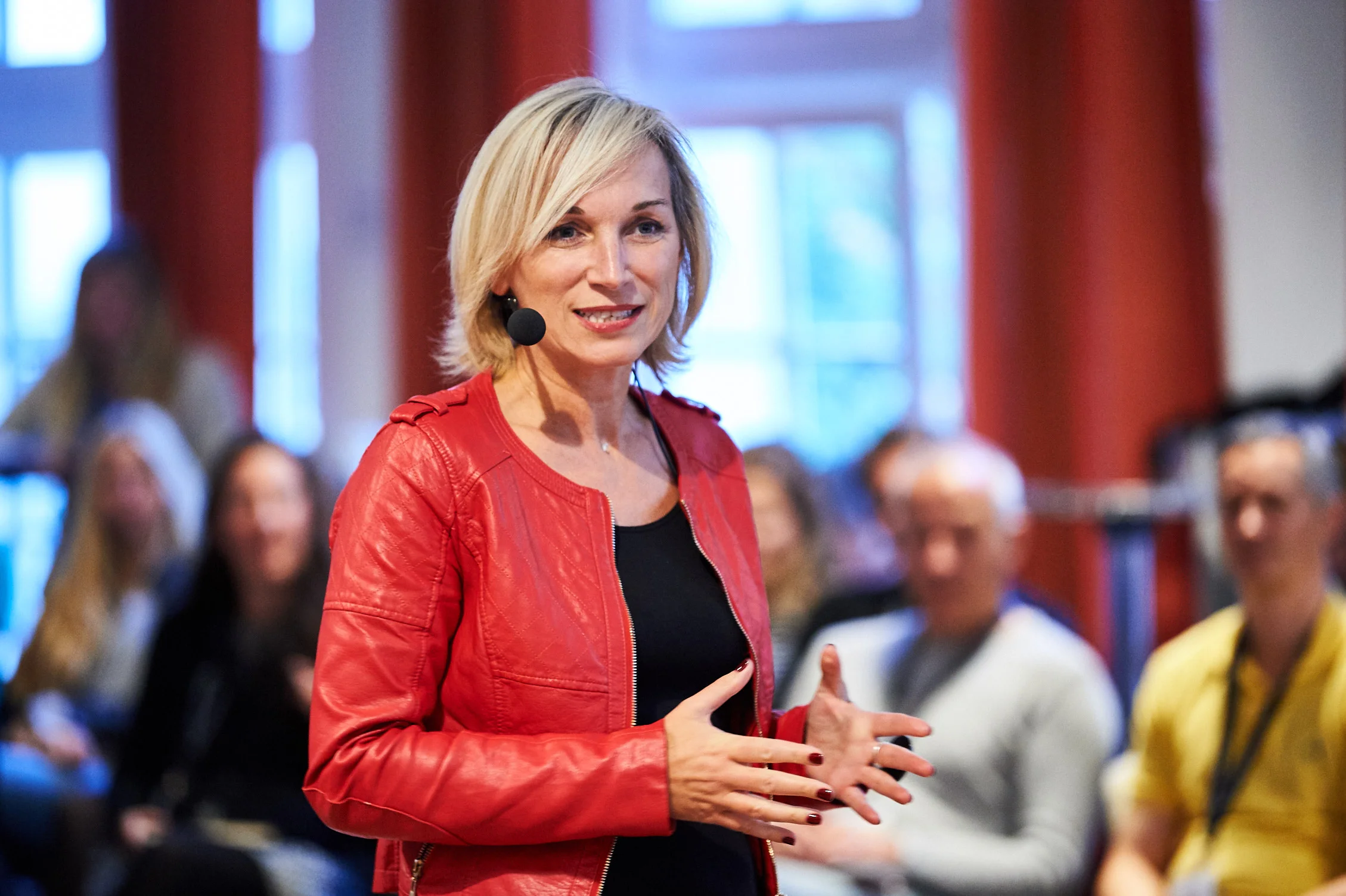Good Bye, Old World
On Uncertainty, Complexity and System Leadership
Philippe Cognée, Carne dei Fiori
Well, there it is… the disruption we’ve been talking about for many years now is here for good. To be fair, disruption was already much more than an overused word on PowerPoint slides: it was a stark reality for professionals rendered obsolete by new technologies… for people impacted by climatic disorders… for migrants driven out of their hometowns by conflicts… The difference this time is that it is now a global experience, profoundly personal and yet shared with billions of our fellow humans. Our irrational belief that the virus would stop at the border is gone.
Oh sure, the experience is vastly different whether you’re wealthy or poor, isolated or with others, healthy or frail, locked down at home or on the front line with customers and patients, supporting young kids (or aging parents) or grownups, in a peaceful relationship or at risk of domestic violence. But the Covid-19 catastrophe affects each of us.
For me, it is too early to draw lessons or conclusions of any sort. The media is full of analysis which I find instructive and confusing at the same time. What is the big picture? What are the big trends? What do we know for sure vs what is still uncertain, subject to change? Is there actually any certainty about the disease that can offer some solid ground for hope, plans, projections?
Uncertainty
“I sometimes tend to believe that human beings are better able to endure pain than uncertainty after all”.
French author and journalist Jean-Paul Kauffmann was detained as a hostage for three years in Lebanon during the 1980s – I remember well his picture then displayed every day on the evening news, and the ever-increasing number of his days of detention. The forced experience of confinement we have been living since mid-March got him to speak recently, in a rare interview.
“Uncertainty is a state that ends up destroying you. The uncertainty of the outcome is harder to bear than the outcome itself, however dramatic it may be. When she was a gynecologist, my wife Joëlle used to tell me about the agony of waiting for test results for her patients. When results arrived confirming the cancer, she observed in them not a relief, but a kind of loosening or lightening. The pain was identified, we could then confront it. Death is always present for any hostage. They live in a kind of double or quits: the cell door that opens may be liberation or death. That said, we cannot live in perpetual fear even if it is always a threat. Who can boast of being exempt from it? The whole problem is living with it. You have to teach fear to keep its distance. It is deceitful and versatile. It wants to mold us. Fear is a great manipulator.”
Predictions and Efficiency
Uncertainty is all the more disturbing that we have grown accustomed to a world of planning, future-proofing and extreme lean. “We’ve become obsessed with predictions”, author Margaret Heffernan says. Having just published her new book (Uncharted: How to Map the Future Together – high on my to-read list!) Heffernan shared her thoughts in a recent online event organized by Jericho Chambers. “We were made to believe – mainly by the Silicon Valley industry – that if we had enough data, we would be able to predict the future. Clearly this doesn’t work, because people are complex and unpredictable, so the industry has shifted to nudging, pushing, influencing us towards what they want us to do”. The “typing” of human beings is by essence authoritarian, philosopher Adorno said – as reminded by Heffernan – as it deprives us of agency. But in democracies, it only goes so far.
Since the future can’t be predicted, we must accept uncertainty. Efficiency goes against that. But “efficiency doesn’t work, because it reduces margins for uncertainty, which is risky and unhelpful in complex environments”, Heffernan says. What my friend Robert Phillips calls, in a sobering essay on Cancer in the Time of Coronavirus, “society’s misplaced obsession on cost-cutting, managerialism and ruthless efficiency”: it is a huge part of the problem.
“People are feeling quite unmoored”
There was much more to this webinar (watch it again here), which resonated nicely with other insights shared in a recent Cognitive Edge event. Along architect Ann Pendleton-Jullian, social & organizational network analysis consultant Valdis Krebs, and Professor of Philosophy Alicia Juarrero, Dave Snowden (Cynefin framework) and Sonja Blignaut discussed Complexity, Chaos and Covid-19. You can watch the event again and access Sonja’s notes here. They started with this comment: these days, we all feel “unmoored”. We don’t know what’s coming but the anchor is (momentarily?) gone.
Now, how do we navigate this space?
Philippe Cognée, Amaryllis n°3
Alicia Juarrero warned against mechanic metaphor (as a big fan of living systems theory, I was all ears), saying “I do believe the biologic metaphor is the correct one for complex systems, which do degrade gracefully unlike machines. It is important to zoom out. Our survival in the West despite woeful lack of leadership these past few years is evidence that we don't suddenly crumble”.
Coherence does not happen at a micro-level, but only in the integration of elements.
Valdis Krebs talked about the paradox of maintaining social closeness in times of physical distancing. From Dave Snowden:
“This is an opportunity to learn about what’s going on. We need to build systems for people to capture what happens on the field, as it happens, without having to interpret them in a cause-to-effect way” (which is always misleading – it was Myron Rogers who made me realize this in the first time)
“There is insufficient cognitive, experiential, political diversity in the situation assessment” (Absolutely! Same thing in the corporate world). “We need to increase cognitive diversity in the way we make decisions”.
Leadership in complex adaptive systems
There is a whole literature around complex adaptive systems and I won’t dare touching it in detail here. Below are just a few elements, as reminded by Snowden, that I find have been essential so far to my own practice of transformation & leadership in large organizations:
Forget the three rules of complex adaptive systems at your own risk
Distribute cognition (= distribute situation assessment), to create diversity and include “the 17%” i.e. those who see what most of us don’t – allusion to the Invisible Gorilla experiment. The objective is to make things visible faster.
Disintermediation: decision makers need to see raw data, not just abstracted data. The lack of empathy creates catastrophic breakdowns in complex systems – loved the reference to one of my favorite SciFi books, Ender’s Game
Granularity & redundancy: centralize coordination, and decentralize decision-making across small groups bonded by trust. Create redundancy to increase resilience.
Complex adaptive systems scale through de-combination / re-combination around new points of coherence, that are the way things stick together and form meaning. They often arise from “OMG moments”, “Wow, I didn’t realize”: moments when people become aware that they have something in common with other people. Rituals and rhythm (routines) are important.
Beware unintended consequences (“the only thing that you can be sure will happen”, Myron Rogers keeps saying). In a crisis, it is a good idea to dedicate a team to unintended consequences.
Some things can be managed, while others can only be observed. It is a frequent temptation to manage what can only be observed. Leaders need to focus on what they can actually manage: constraints, energy allocation, being a catalyst
Narrative-based learning, half-way between formal and informal learning, is a great way to learn properly and avoid retrospective coherence. Journaling is important (I try to do it myself, imperfectly). A great example of this in my views is what Dr David Nabarro (WHO Special Envoy on COVID-19) is doing together with John Atkinson, in the spirit of Living Systems Leadership: check out the COVID-19 Narratives here https://www.4sd.info/covid-19-narratives/
So, yes indeed, these are uncertain times. Scary and painful for many. But they’re also rich in learning, in emotions and reconnections. I hope we don’t waste our fresh, new awareness because it is so full of potential. “Leadership as convening”, as Margaret Heffernan alluded to, is one of them.
Leadership as convening
Acknowledge frailty and your own uncertainty, instead of acting as a leader-know-it-all
Use your power to decide whose voice gets to be heard. The more diverse, the better. Include people standing at the periphery of systems.
Make it possible to share and reflect on what is being experienced.
Acknowledge the experience of people with different perspectives, instead of generalizing from your own experience.
Create the conditions for legitimate decisions.
Use imagination to keep exploring options and possibilities.
Leadership in Crisis – An online conference with Gerd Leonhard & Didier Marlier
Illustrations for this post are pictures of the beautiful work by French artist Philippe Cognée: Carne dei fiori. Watch this video from his recent exhibition in Paris





If work is to become widely automatized, jobs to be replaced by machines and algorithms… then is human engagement at work a waste of time? Thoughts about people engagement in a tech-driven world.